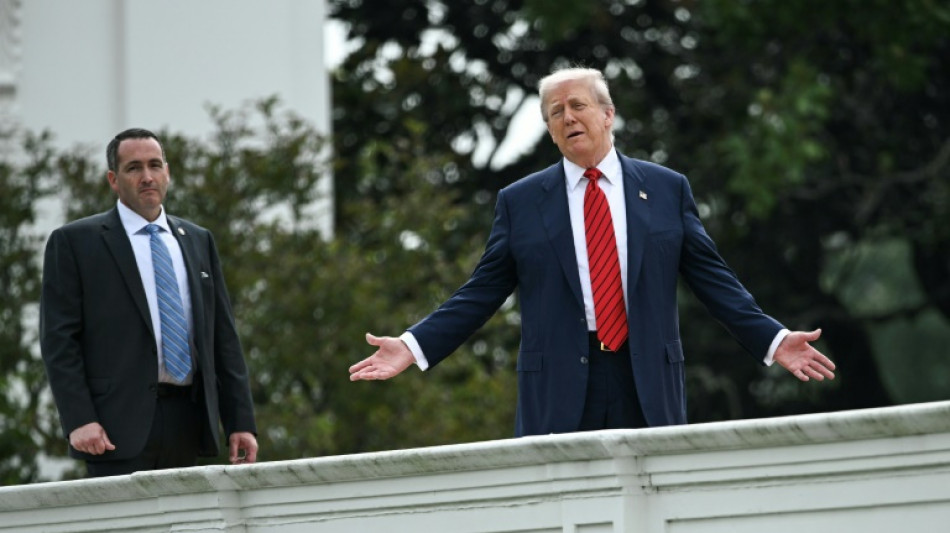
-
 Wildlife flee as floods swamp Indian parks
Wildlife flee as floods swamp Indian parks
-
Record flooding hits Vietnam city, eight killed in north
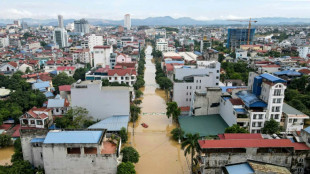
-
 Battling cancer made Vendee Globe win 'more complicated', says skipper Dalin
Battling cancer made Vendee Globe win 'more complicated', says skipper Dalin
-
England, Portugal, Norway closing in on 2026 World Cup

-
 Child protection vs privacy: decision time for EU
Child protection vs privacy: decision time for EU
-
Bear injures two in Japan supermarket, man killed in separate attack

-
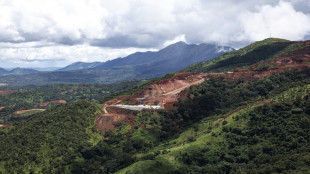 In Simandou mountains, Guinea prepares to cash in on iron ore
In Simandou mountains, Guinea prepares to cash in on iron ore
-
Morikawa says not to blame for 'rude' Ryder Cup fans

-
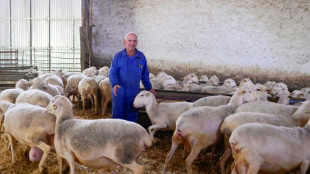 Far right harvests votes as climate rules roil rural Spain
Far right harvests votes as climate rules roil rural Spain
-
'Return to elegance': highlights from Paris Fashion Week

-
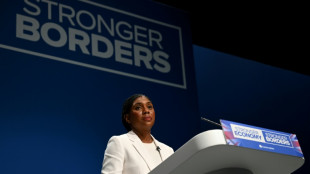 Britain's storied Conservative party faces uncertain future
Britain's storied Conservative party faces uncertain future
-
New Zealand's seas warming faster than global average: report

-
 Snakebite surge as Bangladesh hit by record rains
Snakebite surge as Bangladesh hit by record rains
-
Yankees deny Blue Jays playoff sweep as Mariners beat Tigers

-
 Australia police foil 'kill team' gang hit near daycare centre
Australia police foil 'kill team' gang hit near daycare centre
-
US, Qatar, Turkey to join third day of Gaza peace talks in Egypt
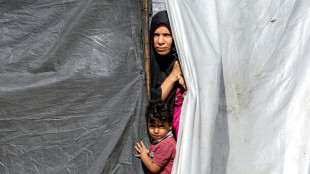
-
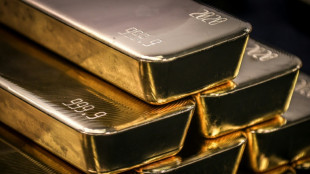 Gold tops $4,000 for first time as traders pile into safe haven
Gold tops $4,000 for first time as traders pile into safe haven
-
Indian garment exporters reel under US tariffs
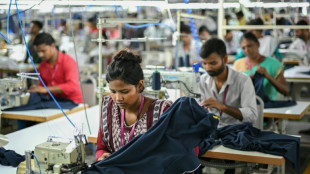
-
 NBA back in China after six-year absence sparked by democracy tweet
NBA back in China after six-year absence sparked by democracy tweet
-
Energy storage and new materials eyed for chemistry Nobel
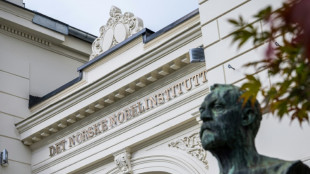
-
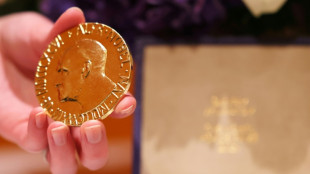 Trump unlikely to win Nobel Peace Prize, but who will?
Trump unlikely to win Nobel Peace Prize, but who will?
-
Qatar, Turkey to join third day of Gaza peace talks in Egypt
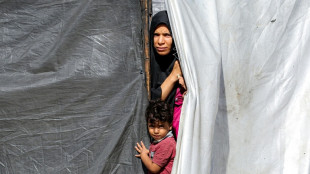
-
 Study finds women have higher genetic risk of depression
Study finds women have higher genetic risk of depression
-
Dolly Parton's sister calls for fan prayers over health issues

-
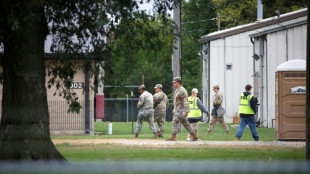 On Trump's orders, 200 troops from Texas arrive in Illinois
On Trump's orders, 200 troops from Texas arrive in Illinois
-
Two bodies found, two missing after Madrid building collapse

-
 Panthers raise banner as NHL three-peat bid opens with win
Panthers raise banner as NHL three-peat bid opens with win
-
Nobel physics laureate says Trump cuts will 'cripple' US research
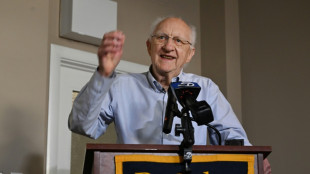
-
 UFC star McGregor suspended 18 months over missed drug tests
UFC star McGregor suspended 18 months over missed drug tests
-
Trump talks up Canada trade deal chances with 'world-class' Carney
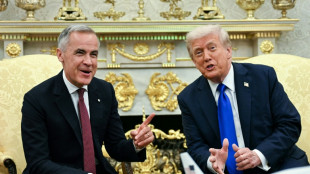
-
 Ecuador president unharmed after apparent gun attack on motorcade
Ecuador president unharmed after apparent gun attack on motorcade
-
Lyon exact revenge on Arsenal, Barca thrash Bayern in women's Champions League

-
 Trump says 'real chance' to end Gaza war as Israel marks attacks anniversary
Trump says 'real chance' to end Gaza war as Israel marks attacks anniversary
-
Gerrard brands failed England generation 'egotistical losers'

-
 NFL fines Cowboys owner Jones $250,000 over gesture to fans
NFL fines Cowboys owner Jones $250,000 over gesture to fans
-
Bengals sign veteran quarterback Flacco after Burrow injury

-
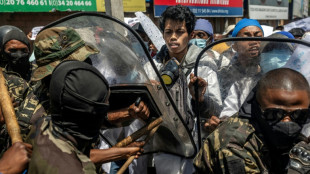 New prime minister inspires little hope in protest-hit Madagascar
New prime minister inspires little hope in protest-hit Madagascar
-
Is Trump planning something big against Venezuela's Maduro?
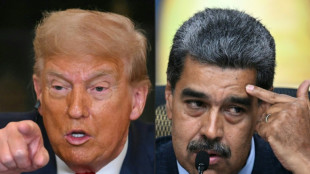
-
 EU wants to crack down on 'conversion therapy'
EU wants to crack down on 'conversion therapy'
-
French sex offender Pelicot says man who abused ex-wife knew she was asleep

-
 Trump says 'real chance' to end Gaza war as Israel marks Oct 7 anniversary
Trump says 'real chance' to end Gaza war as Israel marks Oct 7 anniversary
-
UK prosecutors to appeal dropped 'terrorism' case against Kneecap rapper

-
 Spain, Inter Miami star Alba retiring at end of season
Spain, Inter Miami star Alba retiring at end of season
-
EU targets foreign steel to rescue struggling sector
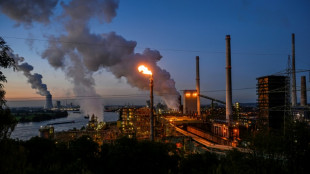
-
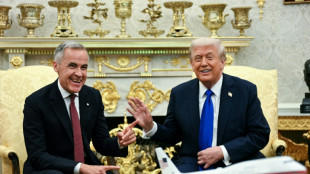 Trump talks up Canada deal chances with visiting PM
Trump talks up Canada deal chances with visiting PM
-
Knight rides her luck as England survive Bangladesh scare

-
 Pro-Gaza protests flare in UK on anniversary of Hamas attack
Pro-Gaza protests flare in UK on anniversary of Hamas attack
-
Top rugby unions warn players against joining rebel R360 competition

-
 Outcast Willis 'not overthinking' England absence despite Top 14 clean sweep
Outcast Willis 'not overthinking' England absence despite Top 14 clean sweep
-
Trump says 'real chance' of Gaza peace deal
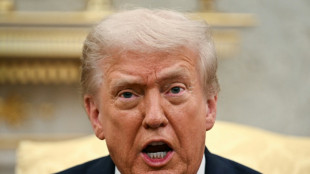

Trump signals tariffs on pharma, chips as trade war widens
US President Donald Trump signaled Tuesday that fresh tariffs on imported pharmaceuticals and semiconductors could be unveiled as soon as the coming week, as he presses on in efforts to reshape global trade.
Trump's latest comments, in an interview on CNBC, come days before a separate set of tariff hikes takes effect on dozens of economies later this week.
The sweeping tariff plans have sparked a flurry of activity as governments seek to avert the worst of his threats -- with Switzerland's leaders heading to Washington on Tuesday in a last-minute push to avoid punitive duties.
But he appears set to widen his trade wars further.
The US president told CNBC that upcoming tariffs on imported pharmaceuticals could reach 250 percent, while adding that he plans for new duties on foreign semiconductors soon.
"We'll be putting (an) initially small tariff on pharmaceuticals, but in one year, one-and-a-half years, maximum, it's going to go to 150 percent," Trump said.
"And then it's going to go to 250 percent because we want pharmaceuticals made in our country."
Trump also said that Washington will be announcing tariffs "within the next week or so."
He added: "We're going to be announcing on semiconductors and chips."
- Concern for US economy -
Trump has taken aim at products from different countries with varying tariff rates after imposing a 10-percent levy on almost all trading partners in April -- with excluded products targeted by sector.
While Swiss leaders are seeking to stave off a US tariff hike to 39 percent come Thursday -- which excludes sectors like pharma -- Trump's plans for a steep pharma levy will likely be a point of contention in any talks.
Pharmaceuticals represented 60 percent of Swiss goods exports to the United States last year.
Besides probing pharmaceuticals and chips imports, Trump has already imposed steep duties of 50 percent on imports of steel and aluminum, alongside lower levels on autos and parts.
In the same CNBC interview, Trump said he expects to raise the US tariff on Indian imports "very substantially over the next 24 hours" due to the country's purchases of Russian oil.
This is a key revenue source for Moscow's military offensive on Ukraine.
His pressure on India comes after signaling fresh sanctions on Moscow if it did not make progress by Friday towards a peace deal with Kyiv, more than three years since Russia's invasion.
Moscow is anticipating talks this week with the US leader's special envoy Steve Witkoff, and the Kremlin has criticized Trump's threat of raising tariffs on Indian goods.
Weak employment data last week pointed to challenges for the US economy as companies take a cautious approach in hiring and investment while grappling with Trump's radical -- and rapidly changing -- tariffs policy.
The tariffs are a demonstration of raw economic power that Trump sees as putting US exporters in a stronger position while encouraging domestic manufacturing by keeping out foreign imports.
But the approach has raised fears of inflation and other economic fallout in the world's biggest economy.
M.Schneider--VB
